BI0 50 in the international press
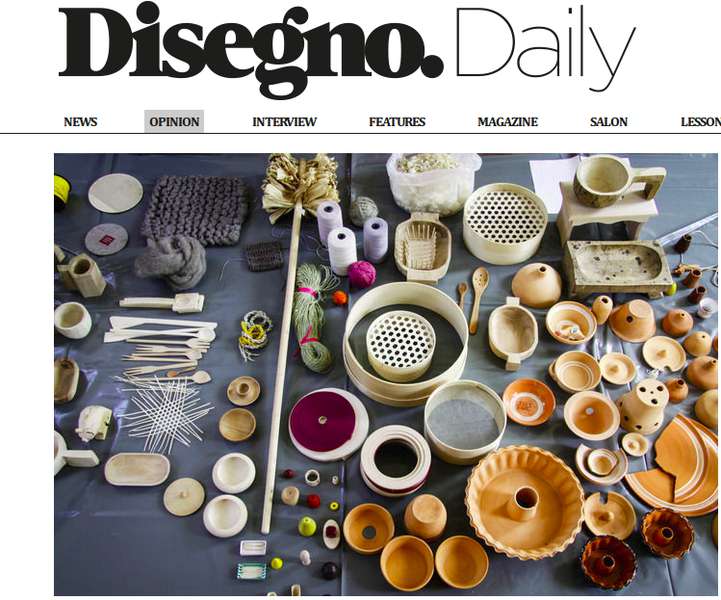
»As part as the design-in-process concept, the projects on display at the biennial do not have the polished aesthetic or mechanical precision of those displayed at other biennials, yet this is a sacrifice the event seems happy to make. Rather than a showcase, BIO 50 is a refreshing platform for experimentation or, as Boelen describes it, “a laboratory for design”. The question of how Boelen’s concepts will translate to further editions of BIO perhaps remains unclear, but as a model for showcasing transparent, process-led design, BIO 50 sets a significant precedent.«
Bio 50 and the importance of process opinion published in Disegno Daily
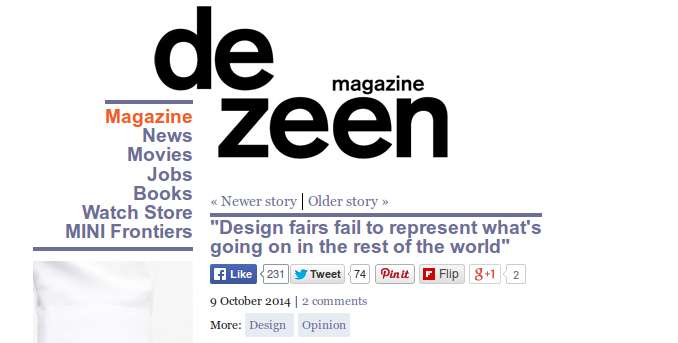
»BIO 50 sparks the energy that is currently missing in most of the international design fairs.«
Design fairs fail to represent what's going on in the rest of the world article published in dezeen magazine
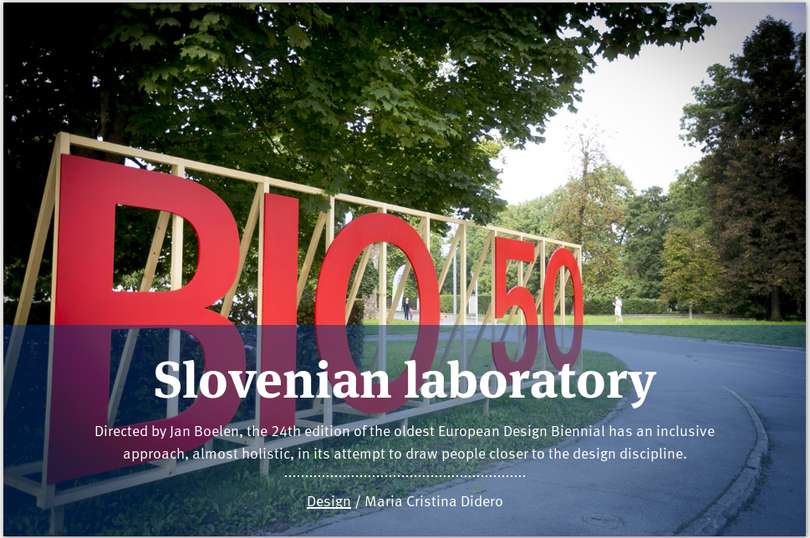
»Jan Boelen argues that he might not even have been needed in this collective work. All modesty apart, we believe that, without someone of his unique standing on the contemporary-design curatorial scene, we would probably not have experienced such a dynamic and complex project.«
Slovenian laboratory article published in domus
»As BIO 50’s subtitle makes clear, this is a design biennial about trying things out. There are no finished objects waiting to be picked up by big brands. Rather, Boelen has challenged designers to create new strategies for dealing with everyday concerns. And, while these strategies may be firmly rooted in Ljubljana, these everyday concerns – housing, food, water, energy – stretch far beyond the borders of Slovenia.«
BIO 50: Ljubljana published in ICON - INTERNATIONAL DESIGN, ARCHITECTURE AND CULTURE.
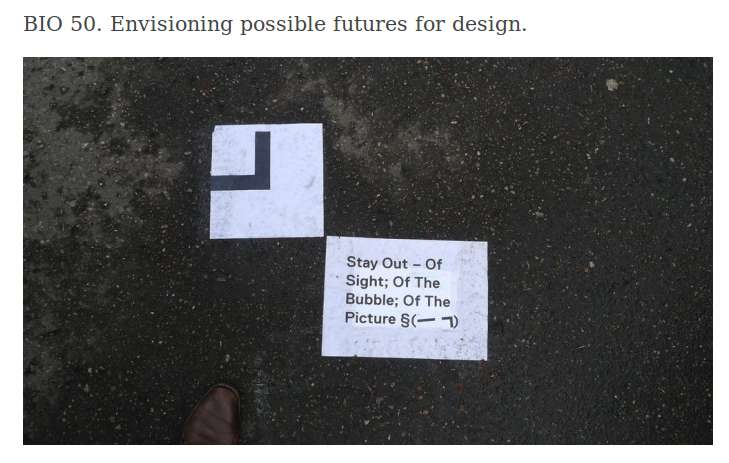
»A fascinating and thought provoking approach of the BIO 50 Biennale is that the works presented cover a variety of issues as well as different scales.«
BIO 50. Envisioning possible futures for design. article published in Quaderns, D'arquitectura i urbanisme.
»In this reality, the modular Tomos engine developed by the Engine Block group becomes an enabler of survival, an industrial construct for a post-industrial age," said Vera Sacchetti, curatorial advisor for Bio 50.«
One engine fits all in Re-do Studio's Bio 50 project article published in dezeen magazine
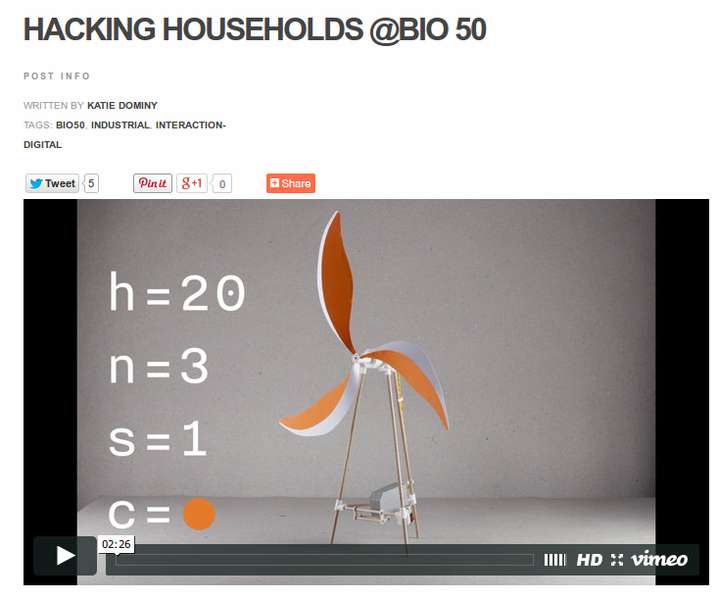
»Led by team mentors Tilen Sepič, designer, photographer, multimedia artist and co-founder of design collective Rompom and Jesse Howard, designer and co-initiator of the OpenStructures project, the team built simple electrical household items such as a desktop fan and a food mixer by repairing, customising, modifying and repurposing existing products, creating a family of appliances designed for disassembly, repair, and modification.«
Hacking households @BIO50 article published at Artsthread Blog
»established under the moniker ‘PSX consultancy‘, a team of designers and scientists have conceived augmentation devices for use by vegetal species for purposes of enhancing the given client’s natural reproductive processes. in other words, they designed and produced sex toys for plants.«
PSX consultancy designs sex toys for plants at BIO 50 article published in designboom
»Friction Atlas addresses the issue of legibility of public space, its programs, and the laws that regulate its uses. Many regulations discretize human behavior, tending to be algorithmic, quantitative and invisible. Sometimes they are rigorous and mathematical, other times loose and under-defined. They are textual, prone to contested interpretations. Friction Atlas aims to make regulations - that are always implicitly present in any public space - explicit and visible, through graphical devices.«
Friction Atlas, a choreographed debate about public space, law and legibility published on the We Make Money Not Art.

